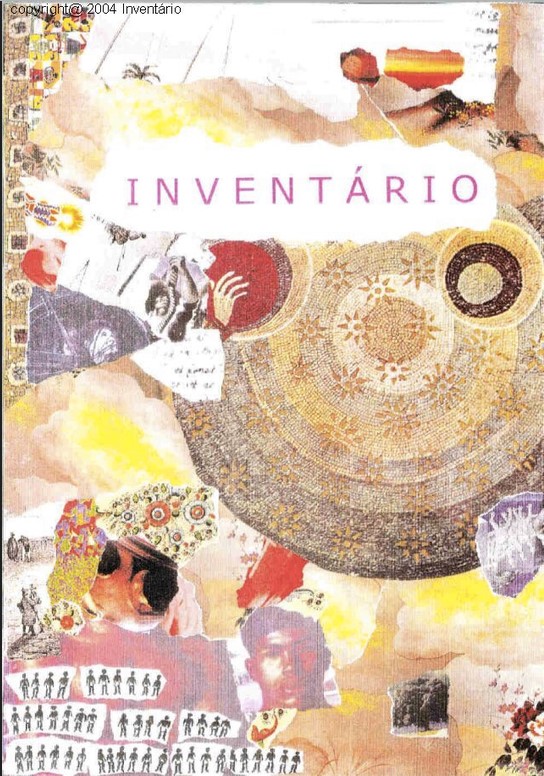OS LIMITES DA LINGUAGEM, DESCONSTRUÇÃO E RIZOMÁTICA – O INOMINÁVEL, DE SAMUEL BECKETT
Palavras-chave:
Desconstrução, Modernidade, Pós-estruturalismo, Fim da Modernidade, Rizomaticidade.Resumo
Meu objetivo neste artigo é duplo: por um lado, explorar a narrativa de Beckett por meio de O Inominável a partir de uma perspectiva pós-estruturalista, a fim de tentar desvendar as estratégias "narratológicas" empregadas por Beckett. Por outro lado, contextualizar Beckett com a Modernidade e a transição para a Pós-Modernidade. Isso nos permite falar sobre Beckett engajado na desconstrução da Narrativa Moderna, que chamamos de Fim da Modernidade.
Downloads
Referências
ALBRIGHT, Daniel. Representation and the Imagination. Beckett, Kafka, Nobokov, and Schoenberg. Chicago and London: The University of Chicago Press, 1981
ARISTOTLE. Poetics. A Translation and Commentary for Students of Literature. Translation by Leon Golden. Commentary by O. B. Hardison, Jr. Englewood Cliffs, New Jersey: Prentice-Hall, 1968
BARTHES, Roland. The Death of the Author. In: The Critical Tradition. Classic Texts and Contemporary Trends. Third Edition. David H. Richter, Editor. Boston and New York : Bedford and St. Marin, 2007, p. 874-875.
BECKETT, Samuel. Worstward Ho. London: John Calder, 1989
BECKETT, Samuel. Three Novels by Samuel Beckett: Molloy, Malone Dies, The Unnamable. New York: Wiedenfeld, 1955.
BEGAM, Richard. Samuel Beckett and the End of Modernity. Stanford, California: Stanford University Press, 1996.
BEGAM, Richard. Splitting the différance: Beckett, Derrida and The Unnamable. In: 3Modern Fiction Studies, 38, 4 (Winter), 1992, p. 873-892.
BEN-ZVI, Linda. Samuel Beckett, Frizt Mauthner y los límites del lenguaje, In: Beckettiana, 5, 1996, p. 23-58.
BEN-ZVI, Linda, Editor. Women in Beckett. Performance and Critical Perspectives. Urbana and Chicago: University of Illinois Press, 1990.
BEN-ZVI, Linda. Samuel Beckett. Boston, Massachusetts: Twayne Publishers, 1986.
BORGES, Jorge Luis. Ficciones. Buenos Aires: Emecé Editores, 1956.
BOUDON, Pierre. Sobre un estatus del objeto: diferir el objeto del objeto. In: Communicaciones. Buenos Aires: Editorial Tiempo Contemporáneo, 1971, p. 95-127.
CASANOVA, Pascale. Samuel Beckett. Anatomy of a Literary Revolution. London - New York: Verso, 2006.
CASANOVA, Pascale. Beckett l’abstracteur: anatomie d’une révolution littéraire. Paris : Éditions du Seuil, 1997.
COHN, Rudy. Editor. Samuel Beckett. New York: McGraw-Hill, 1973.
COHN, Ruby. Still Novel. In: Yale French Studies, 24, 1959: p. 48-53.
CONNOR, Steven. Samuel Beckett. Repetition, Theory and Text. New York: Basil Blackwell, 1988
CRONIN, Antony. Samuel Beckett. The Last Modernist. Hammersmith, London: Harper Collins Publishers, 1990.
DEARLOVE, J. E. Accommodating th echaos. Samuel Beckett’s nonrealational art. Durham, North Carolina: Duke University Press, 1982.
DELEUZE, Gilles and Félix Guattari. Introduction: Rhizome. In: A Thousand Plateaus. Translation and Foreword by Brian Massumi. Minneapolis: University of Minnesota Press, 1987, p. 3-25.
DERRIDA, Jacques. Of Grammatoloty. Translated by Gayatri Chakavorty Spivak. Baltimore: Johns Hopkins University Press, 1974.
DE TORO, Fernando. The End of Theatre Semiotics? A Symptom of an Epistemological Shift. In: Semiotica, Special Issue (August), 2007: p. 109-128.
DE TORO, Fernando. Intersecciones II. Ensayos sobre cultura y literatura en la condición postmoderna y post-colonial. Buenos Aires: Editorial Galerna, 2002.
ESSLIN, Martin. The Theatre of the Absurd. Garden City, New York: Anchor Books, 1961.
FLETCHER, John. The Novels of Samuel Beckett. New York: Barnes and Noble, 1971.
GREIMAS, Algirdas Julien y Joseph Courtés. Sémiotique. Dictionnaire raisonmé de la théorie du langage. Paris: Hachette, 1979.
HABERMS, Jürgen. Modernity – An Incomplete Project. In: The Anti-Aesthetic. Essays on Postmodern Culture. Edited with and Introduction by Hal Foster. New York: The New Press, 1998, p. 1-15.
HABERMAS, Jürgen. The New Conservatism. Cultural Criticism and the Historian’s Debate. Edited and translated by Sherry Weber Nicholsen. Introduction by Richard Wolin. Cambridge, Massachusetts: The MIT Press, 1989.
HASSAN, Ihab. Beckett: Imagination Ending. In: The Dismemberment of Orpheus. Madison, Wisconsin: The University of Wisconsin Press, 1982, p. 220-246.
HASSAN, Ihab. The Literature of Silence. Henry Miller and Samuel Beckett. New York: Alfred a. Knopf, 1967,
ISER, Wolfgan. Subjectivity as the Autogenous Cancellation of Its Own Manifestation. S. Beckett: Molloy, Malone Dies, The Unnamable. In: The Implied Reader. Patterns of Communication in Prose Fiction from Bunyan to Beckett. Baltimore and London: The Johns Hopkins University Press,1974, p. 164-178.
HEIDEGGER, Martin. Unterwegs zur Sprache. Pfullingen: Neske, 1959.







